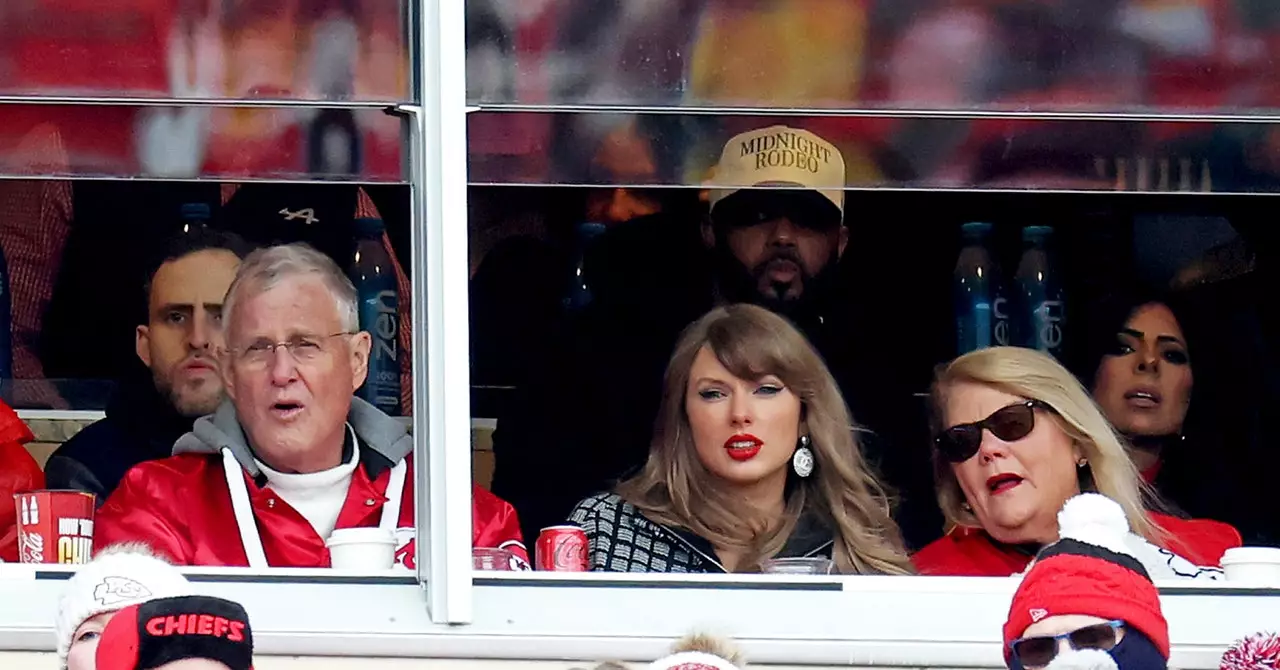The intertwining of pop culture and sports has gained unprecedented momentum, particularly with the emergence of digital platforms that facilitate sports betting. One of the most intriguing developments in recent years has been the “Swift Effect,” a phenomenon revolving around Taylor Swift’s romantic relationship with NFL star Travis Kelce. As Swift continues to reign as one of the most prominent pop icons, her influence extends into betting landscapes, commanding the attention of sportsbooks and creating a new narrative that merges celebrity culture with professional sports.
The correlation between celebrity news and sports betting activities is a relatively new but compelling subject. In communicating with several sportsbooks, including BetRivers, DraftKings, and FanDuel, a clear sentiment emerged: the Swift Factor is significant. During preseason discussions, a representative from BetRivers conveyed that as long as Swift maintains her relationship with Kelce, the betting industry will harness this narrative to draw in a broader clientele. While it may be challenging to quantify the exact impact, the undercurrents suggest that the allure of celebrity can enhance engagement in sports betting.
However, as the season progressed, early indicators suggested that the Swift Effect might be waning. Even without her presence at games, wagers on Kelce remained robust, but interest started stabilizing with fellow teammates rising in parallel betting levels. A FanDuel spokesperson indicated that Kelce’s appeal had normalized, aligning more closely with other Chiefs players. This shift implies that while celebrity connections can spark interest, they may not always sustain long-term betting behavior.
Dr. Michael Naraine, a scholar in sport management, attributes the fluctuation in betting interest to broader societal occurrences. For instance, the U.S. election cycle has consumed media coverage, potentially eclipsing relationship headlines. As Swift and Kelce’s partnership settled into a more mundane routine, the sensational allure diminished, making way for increased focus on pressing news events. While the significance of Swift’s star power remains, it seems to function more as a backdrop than a leading narrative in current betting cycles.
Moreover, demographic analyses reveal entrenched patterns in sports betting. A study from the University of Queensland highlighted the predominance of male bettors, a trend mirrored in the U.S., where female participation in sports betting continues to lag. This contextual backdrop explains the deliberate strategies sportsbooks pursue to attract new audiences, such as Taylor Swift-themed novelty bets.
Efforts to engage women in sports betting have led to innovative marketing strategies featuring celebrity influence. With barrages of advertisements utilizing culturally relevant figures like Swift, there is anticipation that this approach will not only entice more women to the betting table but also shape the industry. Rohann Irving, author of the aforementioned study, points out that novelty bets tied to prominent figures can pique curiosity and draw female bettors, categorizing Swift as a vital resource in the industry’s evolving landscape.
However, despite these marketing efforts, hardcore bettors generally stay rooted in statistics and analytics, often overlooking celebrity narratives. FanDuel’s representatives indicate that avid sports gamblers prioritize on-field performance over off-field drama. Hence, the challenge remains in striking a balance between appealing to casual, narrative-seeking bettors and sustaining engagement from traditional gamblers.
Considering the ever-expanding reach of digital platforms, the transition in sports betting narratives raises ethical questions. Joshua Grubbs, a psychology expert focused on sports betting, argues for a closer examination of how gambling is promoted and whether celebrity-driven bets are more or less problematic than conventional betting promotion strategies. The implications extend into broader discussions about the responsibility of sportsbooks in communicating with their audiences.
Industry representatives foresee an uptick in public interest should Swift and Kelce reach specific milestones in their relationship, such as engagement or family expansion. The possibility of Swift performing during a Super Bowl halftime show, particularly if the Chiefs participate, holds immense potential for creating a betting frenzy that could engage the entire globe. In this context, the Swift Effect represents an evolving story within the betting industry, merging the parallels of fame and competition while inviting scrutiny regarding the future direction of gambling narratives.
The Taylor Swift-Kelce romance exemplifies a larger trend of blending popular culture with sports, creating a unique betting enviroment. While the initial fervor may have leveled off, the relationship continues to shape narratives and betting strategies. As the landscape evolves, the ongoing synthesis of celebrity culture and sports betting will likely pave the way for new possibilities—and perhaps new challenges—reflecting a society increasingly captivated by the dance between fame and competition.

